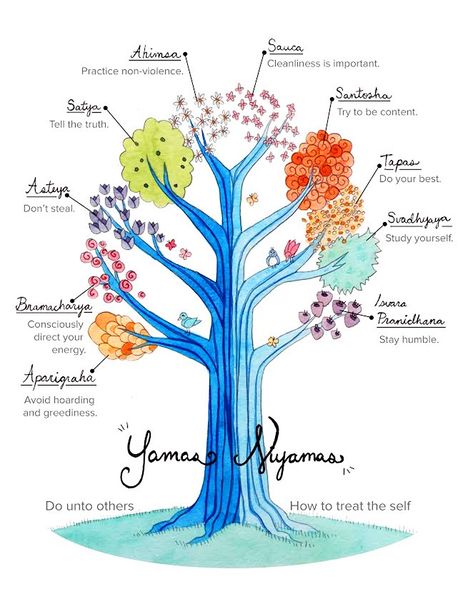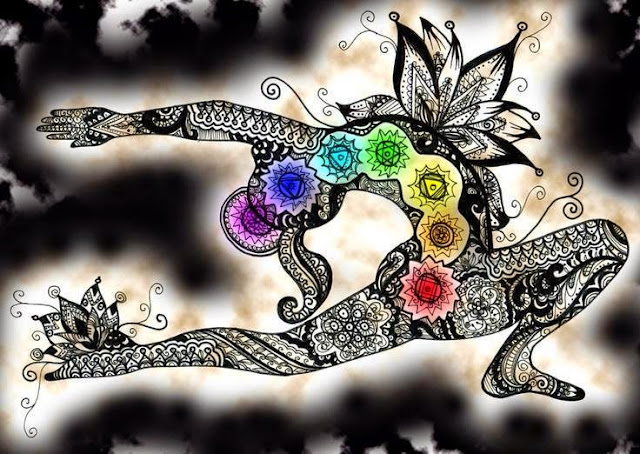Hindu Ethics
The mark of Dharma is Achara or good conduct. Achara is the mark of the good. From Achara is Dharma born. Dharma enhances life. Man attains prosperity and fame, here and hereafter, through the practice of Dharma.
Good conduct is the highest Dharma. It is the root of all Tapas or austerities. Righteousness, truth and good works, power and prosperity—all originate from conduct.
Conduct And Character



Benefits Of The Practice Of Ethics
Moral Integrity: Practicing ethics helps individuals develop and maintain moral integrity. It involves living in accordance with one’s values and principles, which leads to a strong sense of personal integrity and self-respect.
Trust and Credibility: Ethical behavior builds trust and credibility, both at the individual and organizational levels. People are more likely to trust and respect those who consistently make ethical choices, which is essential for healthy personal and professional relationships.
Positive Reputation: Ethical individuals and organizations tend to have a positive reputation. This can lead to better opportunities, whether in terms of career advancement, business success, or personal relationships.
Social Harmony: A society where individuals and institutions prioritize ethics tends to be more harmonious. Ethical behavior fosters cooperation, understanding, and a sense of community, reducing conflicts and promoting social cohesion.
Effective Decision-Making: Ethical decision-making is typically more thoughtful and balanced. It involves considering the consequences of one’s actions on others and society as a whole, leading to more well-informed and just decisions.
Personal Growth: Engaging in ethical reflection and practice can contribute to personal growth and self-improvement. It encourages individuals to be more empathetic, compassionate, and aware of their own shortcomings.
Conflict Resolution: Ethical principles often guide effective conflict resolution. Ethical negotiation and mediation techniques can help parties involved in disputes find common ground and reach mutually beneficial solutions.
Employee Satisfaction: Organizations that prioritize ethics tend to have more satisfied and engaged employees. Ethical leadership and decision-making create a positive work environment, leading to greater job satisfaction and loyalty.
Legal Compliance: Ethical behavior often aligns with legal standards and regulations. Practicing ethics can help individuals and organizations avoid legal issues and regulatory violations.
Environmental and Social Responsibility: Ethical considerations can lead to a greater focus on environmental sustainability and social responsibility. This is increasingly important in a world facing environmental challenges and social inequalities.
Long-Term Success: Ethical behavior can contribute to long-term success in various domains, including business and personal relationships. It may involve sacrificing short-term gains for the sake of long-term stability and growth.
Well-Being and Happiness: Many people find a sense of well-being and happiness in living in alignment with their ethical principles. Acts of kindness, generosity, and ethical living can contribute to a more fulfilling life.
Global Peace: On a broader scale, the practice of ethics contributes to global peace and cooperation. Ethical diplomacy and international relations are essential for addressing global challenges and conflicts.
The Foundational Principles Of Hindu Ethics
Dharma (Duty and Righteousness): Dharma is the central concept in Hindu ethics. It refers to one’s duty, righteousness, and moral obligations. Each individual has a unique dharma based on their age, caste, gender, occupation, and life stage. Fulfilling one’s dharma is considered essential for leading a virtuous life.
Karma (Law of Action and Consequences): The concept of karma teaches that every action has consequences. Good actions lead to positive karma, while bad actions lead to negative karma. The cycle of birth, death, and rebirth (samsara) is influenced by one’s accumulated karma.
Ahimsa (Non-Violence): Ahimsa is the principle of non-violence and non-harm. It is highly valued in Hindu ethics and has influenced many other philosophical and religious traditions, including Jainism and the teachings of Mahatma Gandhi.
Satya (Truth): Honesty and truthfulness are considered essential virtues in Hindu ethics. Speaking the truth is seen as a moral imperative, though it is also understood that truth should be spoken with compassion and at the right time.
Asteya (Non-Stealing): Asteya emphasizes not taking what does not belong to you, both in a material and non-material sense. This includes not only refraining from theft but also avoiding envy and covetousness.
Brahmacharya (Celibacy and Self-Control): Brahmacharya refers to self-control and celibacy, especially in the context of spiritual pursuits. It encourages individuals to control their desires and maintain discipline.
Aparigraha (Non-Possessiveness): Aparigraha is the principle of non-possessiveness and non-attachment. It encourages individuals to minimize material possessions and not be overly attached to worldly belongings.
Svadharma (One’s Own Duty): Svadharma is the idea that individuals should follow their own dharma or duty rather than trying to perform the duties of others. It stresses the importance of self-realization and self-discovery.
Yamas and Niyamas: These are the ethical and moral guidelines outlined in Patanjali’s Yoga Sutras, which are also influential in Hindu ethical thought. The Yamas include non-violence, truthfulness, non-stealing, celibacy, and non-possessiveness. The Niyamas include cleanliness, contentment, self-discipline, self-study, and surrender to the divine.
Moksha (Spiritual Liberation): The ultimate goal of Hindu ethics is to attain Moksha, which is liberation from the cycle of birth and death. Achieving Moksha is considered the highest ethical and spiritual aspiration in Hinduism.



Philosophy Of Right And Wrong
Everybody speaks: “This is right, that is wrong; you are right, he is wrong;” but he cannot tell you exactly what he means by ‘right’ and ‘wrong’.
What is the criterion by which we judge an action to be right or wrong, and good or bad? “Right and wrong” and “good and bad” are relative terms. Right and wrong refer to the moral standard, as law. Good and bad refer to it, as end. You will have to adjust your conduct according to this moral standard. That which is in accordance with a rule is right. That which is worthy of achievement is good. Religion gives us the ultimate data upon which ethical science may be built.
Rights-Based Ethics: This ethical framework, championed by philosophers like John Locke and John Rawls, emphasizes individual rights as a foundation for morality. It asserts that certain rights, such as the right to life, liberty, and property, are inviolable and should be protected and respected.
Feminist Ethics: Feminist ethics, emerging from feminist philosophy, focuses on gender-based moral issues and the experiences of women. It critiques traditional ethical theories for their male-centric perspectives and seeks to incorporate feminist insights into moral philosophy.
